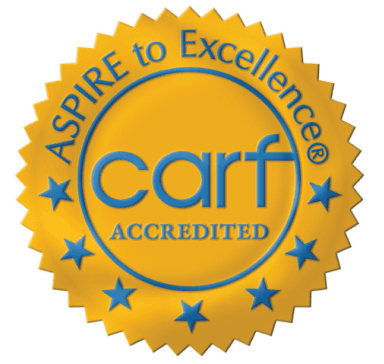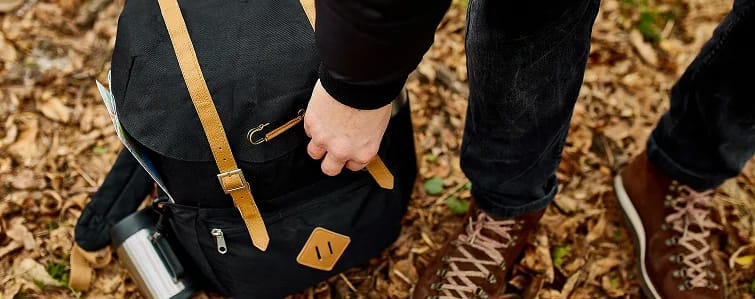Home > Treatment Programs


Our Evidence Based Practice – Model of Care Curriculum (EBP) consists of scientifically-supported psychotherapeutic approaches that help clients identify, dissect, and reprogram harmful thoughts and behaviors. Clinical therapies used at a GRC drug and alcohol rehab program may include Cognitive Behavioral Therapy (CBT), Dialectical Behavior Therapy (DBT), Eye Movement Desensitization and Reprocessing (EMDR), Trauma Therapy, and Grief & Loss Therapy. Our trained and experienced clinicians leverage these therapies to help addicted adults approach and process difficult and painful issues related to their substance use origins and triggers. When integrated with our structured 12-Step curriculum, these clinical therapies can play an instrumental role in recovery. Read more about EBP for addiction.
Granite Recovery Centers is now offering primary mental health treatment for adult men and women in Canterbury Mental Health, NH’s beautiful countryside. Our residential center provides a specialized and effective program for clients struggling with mental health disorders and underlying substance use. Our multidisciplinary treatment team serves clients with anxiety disorders, depression, schizophrenia, bipolar disorder, obsessive-compulsive disorder, and post-traumatic stress disorder. Our team is comprised of highly skilled medical professionals, psychiatric professionals, and masters level therapists, as well as individual case management and peer-to-peer support.
We proudly offer the following therapies:
12-Step centered refers to the incorporation of the 12 Traditions of Alcoholics Anonymous or Narcotics Anonymous into our NH drug and alcohol rehab center. While some addiction rehab programs pay little more than lip service to the 12 Steps (passing along a book or recommending that the client seek out and attend A.A. group), the 12 Steps are core to our treatment approach.
Our curriculum begins on day one with each client being immersed in teachings that include self-acceptance, giving back, making amends, and active participation in the 12-Step community.
12-Step programs can approach addiction in a slightly different way. Using the 12 Steps of Alcoholics Anonymous, treatment centers structure classes and group therapy (non-clinical) around “working the steps” to understand addiction and resolve the triggers or “compulsion” that drives substance abuse. Patients are asked to really explore who they are, their addiction, why they use, and what has resulted in their lives because of addiction. With this soul-searching and self-awareness, they are able to make amends with addiction as a disease and find a life of purpose without drugs or alcohol.
As one might guess, drug and alcohol treatment centers that use both approaches together are integrated. The integrated approach is hugely successful for many because it offers the actionable plan of the 12 Steps, but backs it up with some solid psychotherapeutic sessions where patients can explore the root and results of their painful addiction.
Addiction is more often than not a symptom of underlying mental and psychological issues. In fact, at least half of all people who suffer from a substance use disorder also suffer from a psychological disorder or have experienced a significant emotional or physical trauma, hence the term co-occurring disorders. Inpatient and outpatient environments can provide clinical treatment for co-occurring disorders so that both the mental disorder and the substance use can be addressed. In order to best serve a client with a co-occurring mental disorder in a drug rehab setting, evidence-based clinical treatment must be individualized to both the client’s addiction and his or her mental disorder.

In a full continuum of care, clients are tracked and guided over time as they progress through a comprehensive array of addiction treatment services spanning all levels and intensity of care.
Granite Recovery Centers operates 12 facilities throughout New Hampshire, each playing its own specialized role in our full end-to-end continuum of addiction care including:

You can live your best life away from drug and alcohol addiction. Contact our experienced staff at Granite Recovery Centers to get started on your journey to recovery. We are with you every step of the way to your life free from addiction.
Medical Detox at our NH drug and alcohol rehab center is typically the first step in the process of recovering from drug or alcohol addiction. We also medical detox treatment at our Liberty Bay facility in Portland, Maine. Addiction is a disease of both the mind and the body. Medical detox deals with both mind and body allowing clients, under medical supervision, to comfortably cleanse their systems of drugs and alcohol so that they can be strong, alert and clear minded as they proceed into primary treatment. Granite Recovery Centers provides medical detoxification for people who do not need immediate medical intervention, are not a danger to themselves, and are capable of self-evacuation in the event of an emergency.

Medical Detox at our NH drug and alcohol rehab center is typically the first step in the process of recovering from drug or alcohol addiction. Addiction is a disease of both the mind and the body. Medical detox deals with both mind and body allowing clients, under medical supervision, to comfortably cleanse their systems of drugs and alcohol so that they can be strong, alert and clear minded as they proceed into primary treatment.
Our four extended care facilities provide additional time for clients who desire or require structured support and therapy while solidifying sober concepts, and propelling them into early recovery towards a life of abundance. Typically a “step down” stage of the continuum for clients successfully discharging from a residential primary treatment program, extended care provides clients extended time to work on the concepts and skills learned in primary treatment while preparing for eventual independent living.


Outpatient drug rehab programs are often the last step of treatment and coincide with full immersion back into the real world. Intensive outpatient treatment is also implemented as part of our extended care programs where clients reside at one of our extended care facilities and attend Intensive Outpatient Programs (IOP) at a neighboring facility. Outpatient programs can vary in intensity of support and programming. IOPs generally require clients to participate in continued clinical, holistic, and 12-step sessions at a minimum of 10 hours a week.

Our four sober living homes are residential settings that provide safe, supportive, structured, and sober environments for clients in early recovery. In the treatment continuum, sober living typically follows extended care although some elect to enter sober living directly following primary treatment. Sober living acts as a transitional buffer for clients starting work or school and moving about in the “real world”. Structured yet independence-focused sober homes provide an environment where clients can practice and fine tune life, their accountability, life skills, and sober concepts.

Holistic therapies are used to treat and unify the mind, body, and spirit when one or all are unwell. Body-centric therapies such as yoga, meditation, and exercise help quiet the mind, strengthen the body, and center the whole person spiritually. Holistic therapies at GRC compliment our hybrid clinical/12-Step drug and alcohol rehab program, help clients resolve physical and mental imbalances, and find healing through mindfulness and self-acceptance.
If you’re thinking about going to admitting to a drug rehab facility and have never been before, of course, you have a multitude of questions. Facing any new experience can be scary, and especially, if that new experience presents a permanent life change. We’ve put together a list of some of the most important things to know about drug and alcohol treatment centers and what to expect while there, to help you better familiarize with the concept.
Some drug and alcohol treatment centers have on-site medical detox services, in which you will be medically-monitored while you go through a bodily withdrawal from the drug you are addicted to. Other facilities will recommend detox if needed, to nearby centers and hospitals that have the medical resources to facilitate a managed detox. Note: Not all clients are required to detox under medical supervision, however, in some cases, depending on the level of use and/or specific substance, monitored detox is required to avoid potential fatal consequences. You should consult with rehab staff to determine if medically-supervised detox is right for you, prior to beginning inpatient drug rehab.


Depending on what kind of drug rehab you choose for your addiction, you will find that some programs are mostly clinical (individual and group therapy), 12-Step-based (ground in principles of AA’s 12-Step program), or a combination of these two. There are different schools of thought in addiction treatment, and the types of drug and alcohol treatment centers available are evidence to this. Granite Recovery Centers tailors individual treatment program approaches for each patient, ensuring the best, personalized addiction treatment.
For clinical-based programs at the Granite drug and alcohol rehab center, you will typically find a structured environment individual and group therapy sessions focused on determining the underlying causes and triggers of substance abuse, while also reconciling with the negative effects of use. Through behavioral therapy sessions with psychiatric professionals (as well as through group therapy), patients learn how to process underlying causes differently, and respond soberly to triggers. The most common of psychotherapies used in drug and alcohol treatment centers are:
Cognitive behavioral therapy
Dialectical behavioral therapy
Grief and loss therapy
Trauma/PTSD therapy

Unfortunately, most patients will not gain lifelong sobriety after residential rehab treatment. A habit, an addiction needs time and nurturing to change. This is why many drug and alcohol treatment centers often recommend follow-up care to avoid the potential for relapse. This can come in the form of the following:
While these are options for someone in early recovery (first three months, typically), they are recommended differently, based on where you go. While most treatment facilities will agree that a patient should admit to follow-up treatment, they often don’t agree to what the process should look like. These are the most popular courses of follow-up care after primary treatment at Granite’s NH drug and alcohol rehab center:
Statistics show that the more support, resources, and time patients have to focus on recovery in the first year, the better chances of lasting sobriety.
For drug rehab or any form of substance abuse treatment to be effective, numerous conditions must be met. Care should not ignore individual differences and circumstances, but should be individualized and address clients’ specific needs. Care providers must pay attention to co-occurring mental disorders that commonly fuel substance abuse, and should offer treatment with clinically-backed interventions offered by licensed clinicians like Cognitive Behavioral Therapy – not enticing promises of recovering at a luxury spa.
Good recovery programs recognize that a 30-day stay is often not enough time for clients to develop the skills and habits needed to overcome their addiction, and should offer longer stays, extended care, sober living, continued treatment and support, or direction to further resources and care once an inpatient residence is over. At Granite Recovery Centers, we pride ourselves on providing top of the line treatment that is evidence based and clinically proven to be the most effective approach to addiction treatment programs. We help to provide the tools, strategies, self-understanding, and community that serve as the foundation for a successful recovery and a happier, drug-free life.

If you want to visit one of our New England drug rehab centers, please contact us at Granite Recovery Centers. Our experts will work with you to find a high-quality treatment option that meets your needs. We strive to provide a holistic level of treatment with evidence-based care, giving you the help necessary to regain your sobriety for good.
New Freedom Academy is now Canterbury Behavioral Health Canterbury, NH — Granite Recovery...
When you’re taking drugs, the potential for fakes, such as fake Xanax, might...

Granite Recovery Services does not discriminate on the basis of race, color, religion, sex, sexual orientation, gender identity or expression, national origin, ancestry, physical or mental disability, age, marital status or receipt of public assistance in the admission or access to or treatment in its programs or activities.
On call for you 24/7
| Cookie | Duration | Description |
|---|---|---|
| __cf_bm | 1 hour | This cookie, set by Cloudflare, is used to support Cloudflare Bot Management. |
| .AspNetCore.Cookies | 11 months | This cookie is installed by BayMark Health Services, Inc. The cookie is used to maintain persistence with ChatGPT sessions. |
| .AspNetCore.CookiesC1 | 11 months | This cookie is installed by BayMark Health Services, Inc. The cookie is used to maintain persistence with ChatGPT sessions. |
| .AspNetCore.CookiesC2 | 11 months | This cookie is installed by BayMark Health Services, Inc. The cookie is used to maintain persistence with ChatGPT sessions. |
| .AspNetCore.CookiesC2 | 11 months | This cookie is installed by BayMark Health Services, Inc. The cookie is used to maintain persistence with ChatGPT sessions. |
| .AspNetCore.CookiesC3 | 11 months | This cookie is installed by BayMark Health Services, Inc. The cookie is used to maintain persistence with ChatGPT sessions. |
| .AspNetCore.CookiesC3 | 11 months | This cookie is installed by BayMark Health Services, Inc. The cookie is used to maintain persistence with ChatGPT sessions. |
| AspNetCore.Cookies | 11 months | This cookie is installed by BayMark Health Services, Inc. The cookie is used to maintain persistence with ChatGPT sessions. |
| AspNetCore.CookiesC1 | 11 months | This cookie is installed by BayMark Health Services, Inc. The cookie is used to maintain persistence with ChatGPT sessions. |
| cookielawinfo-checkbox-advertisement | 1 year | Set by the GDPR Cookie Consent plugin, this cookie records the user consent for the cookies in the "Advertisement" category. |
| cookielawinfo-checkbox-analytics | 11 months | This cookie is set by GDPR Cookie Consent plugin. The cookie is used to store the user consent for the cookies in the category "Analytics". |
| cookielawinfo-checkbox-functional | 11 months | The cookie is set by GDPR cookie consent to record the user consent for the cookies in the category "Functional". |
| cookielawinfo-checkbox-necessary | 11 months | This cookie is set by GDPR Cookie Consent plugin. The cookies is used to store the user consent for the cookies in the category "Necessary". |
| cookielawinfo-checkbox-others | 11 months | This cookie is set by GDPR Cookie Consent plugin. The cookie is used to store the user consent for the cookies in the category "Other. |
| cookielawinfo-checkbox-performance | 11 months | This cookie is set by GDPR Cookie Consent plugin. The cookie is used to store the user consent for the cookies in the category "Performance". |
| CookieLawInfoConsent | 1 year | CookieYes sets this cookie to record the default button state of the corresponding category and the status of CCPA. It works only in coordination with the primary cookie. |
| elementor | never | The website's WordPress theme uses this cookie. It allows the website owner to implement or change the website's content in real-time. |
| viewed_cookie_policy | 11 months | The cookie is set by the GDPR Cookie Consent plugin and is used to store whether or not user has consented to the use of cookies. It does not store any personal data. |
| wpEmojiSettingsSupports | session | WordPress sets this cookie when a user interacts with emojis on a WordPress site. It helps determine if the user's browser can display emojis properly. |
| Cookie | Duration | Description |
|---|---|---|
| yt-player-bandwidth | never | The yt-player-bandwidth cookie is used to store the user's video player preferences and settings, particularly related to bandwidth and streaming quality on YouTube. |
| yt-player-headers-readable | never | The yt-player-headers-readable cookie is used by YouTube to store user preferences related to video playback and interface, enhancing the user's viewing experience. |
| yt-remote-cast-available | session | The yt-remote-cast-available cookie is used to store the user's preferences regarding whether casting is available on their YouTube video player. |
| yt-remote-cast-installed | session | The yt-remote-cast-installed cookie is used to store the user's video player preferences using embedded YouTube video. |
| yt-remote-connected-devices | never | YouTube sets this cookie to store the user's video preferences using embedded YouTube videos. |
| yt-remote-device-id | never | YouTube sets this cookie to store the user's video preferences using embedded YouTube videos. |
| yt-remote-fast-check-period | session | The yt-remote-fast-check-period cookie is used by YouTube to store the user's video player preferences for embedded YouTube videos. |
| yt-remote-session-app | session | The yt-remote-session-app cookie is used by YouTube to store user preferences and information about the interface of the embedded YouTube video player. |
| yt-remote-session-name | session | The yt-remote-session-name cookie is used by YouTube to store the user's video player preferences using embedded YouTube video. |
| ytidb::LAST_RESULT_ENTRY_KEY | never | The cookie ytidb::LAST_RESULT_ENTRY_KEY is used by YouTube to store the last search result entry that was clicked by the user. This information is used to improve the user experience by providing more relevant search results in the future. |
| Cookie | Duration | Description |
|---|---|---|
| _uetsid | 1 day | Bing Ads sets this cookie to engage with a user that has previously visited the website. |
| _uetvid | 1 year 24 days | Bing Ads sets this cookie to engage with a user that has previously visited the website. |
| Cookie | Duration | Description |
|---|---|---|
| _fbp | 3 months | Facebook sets this cookie to display advertisements when either on Facebook or on a digital platform powered by Facebook advertising after visiting the website. |
| _ga | 1 year 1 month 4 days | Google Analytics sets this cookie to calculate visitor, session and campaign data and track site usage for the site's analytics report. The cookie stores information anonymously and assigns a randomly generated number to recognise unique visitors. |
| _ga_* | 1 year 1 month 4 days | Google Analytics sets this cookie to store and count page views. |
| _gat_UA-* | 1 minute | Google Analytics sets this cookie for user behaviour tracking. |
| _gcl_au | 3 months | Google Tag Manager sets the cookie to experiment advertisement efficiency of websites using their services. |
| _gid | 1 day | Google Analytics sets this cookie to store information on how visitors use a website while also creating an analytics report of the website's performance. Some of the collected data includes the number of visitors, their source, and the pages they visit anonymously. |
| _hjSession_* | 1 hour | Hotjar sets this cookie to ensure data from subsequent visits to the same site is attributed to the same user ID, which persists in the Hotjar User ID, which is unique to that site. |
| _hjSessionUser_* | 1 year | Hotjar sets this cookie to ensure data from subsequent visits to the same site is attributed to the same user ID, which persists in the Hotjar User ID, which is unique to that site. |
| _hjTLDTest | session | To determine the most generic cookie path that has to be used instead of the page hostname, Hotjar sets the _hjTLDTest cookie to store different URL substring alternatives until it fails. |
| Cookie | Duration | Description |
|---|---|---|
| __ctmid | 1 month | CallTrackingMetrics sets this cookie to determine the advertising channel that led a visitor to the website and also show the tracking phone number that corresponds to that channel. |
| fr | 3 months | Facebook sets this cookie to show relevant advertisements by tracking user behaviour across the web, on sites with Facebook pixel or Facebook social plugin. |
| MUID | 1 year 24 days | Bing sets this cookie to recognise unique web browsers visiting Microsoft sites. This cookie is used for advertising, site analytics, and other operations. |
| test_cookie | 15 minutes | doubleclick.net sets this cookie to determine if the user's browser supports cookies. |
| VISITOR_INFO1_LIVE | 6 months | YouTube sets this cookie to measure bandwidth, determining whether the user gets the new or old player interface. |
| VISITOR_PRIVACY_METADATA | 6 months | YouTube sets this cookie to store the user's cookie consent state for the current domain. |
| YSC | session | Youtube sets this cookie to track the views of embedded videos on Youtube pages. |
| yt.innertube::nextId | never | YouTube sets this cookie to register a unique ID to store data on what videos from YouTube the user has seen. |
| yt.innertube::requests | never | YouTube sets this cookie to register a unique ID to store data on what videos from YouTube the user has seen. |
| Cookie | Duration | Description |
|---|---|---|
| ct213024 | session | Description is currently not available. |
| ENTERPRISE_SESSION | 7 days | Description is currently not available. |
| guest | 1 month | No description available. |
| JOTFORM_SESSION | 1 month | No description available. |
| MSPTC | 1 year 24 days | Description is currently not available. |
| userReferer | 1 month | No description available. |